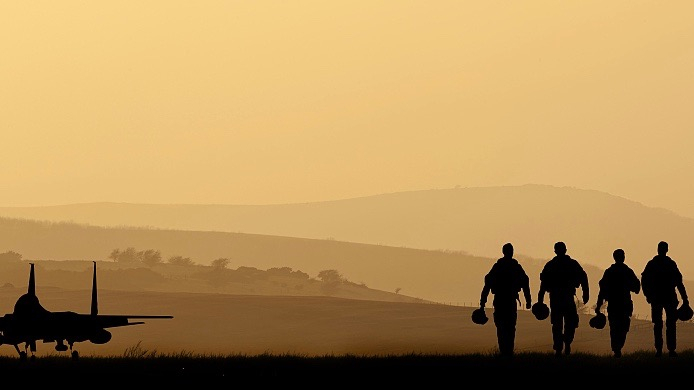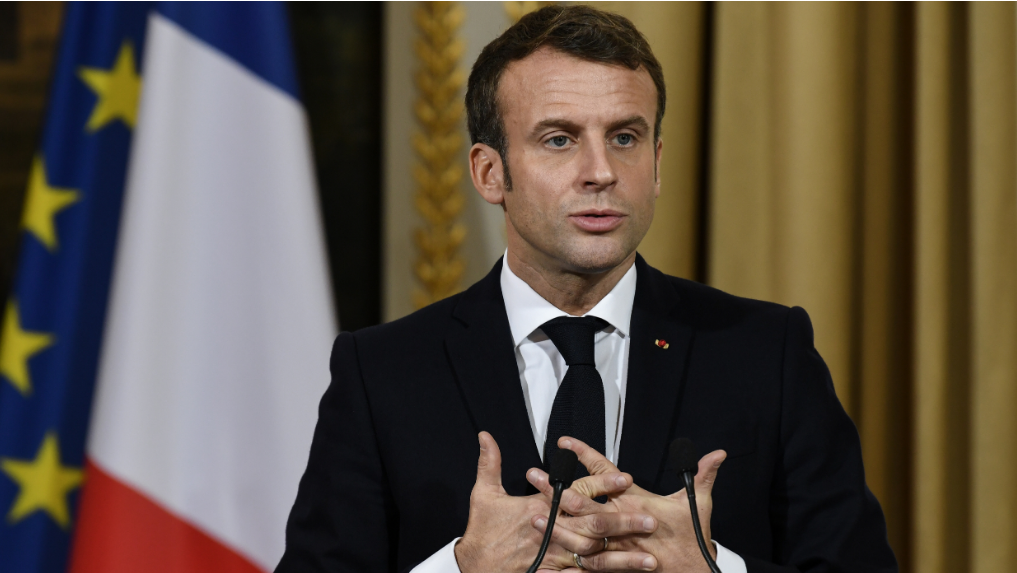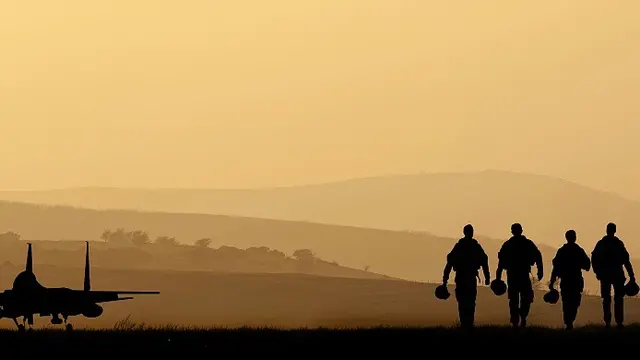
**Editor's note: **Seymur Mammadov is director of the international expert club EurAsiaAz and editor-in-chief of Azerbaijan's news agency Vzglyad.az. The article reflects the author's opinions, and not necessarily the views of CGTN.
The tensions and misunderstandings, which are increasingly observed recently between the once bosom buddies of Europe and the United States, can develop into a serious confrontation – if not at the government level, then at the public level. Judging by the events of the past few days, Europe is extremely annoyed by the U.S.' attempt to turn the old world into an arena of hostilities.
An airplane arrived in Hamburg with American troops, who will take part in NATO's largest exercises over the past 25 years with the significant name Defender Europe 2020. A day earlier, the unloading of four cargo ships that delivered American military equipment to Europe began in the port of Bremerhaven. In total, 37,000 military men from 18 countries will take part in the exercises and 20,000 come from the United States.
Why do the Americans arrange these games? What is all this spending? And is it worth complicating an already difficult international situation with such a power display?
The answer to these questions can be found in one of the most ambitious titles of maneuvers: Defender of Europe. From whom exactly the U.S. is going to "protect" Europeans, we will not guess for a long time. The need for protection in any situation implies the presence of an adversary. There is an attempt to draw partners in the military bloc into a showdown between Americans and Russians. After all, Europe abuts, and Washington for a long time cannot achieve tough sanctions against Moscow.
Europeans controlled in a sense by the overseas ally evade as they can, but America is crushing. Take, for example, the Congress' recently announced plans for sanctions on the Nord Stream-2 gas pipeline, through which Russian gas should go to Germany. Washington wants to force Europe to follow its steps, although it is not difficult to understand how unprofitable it is for Germany itself.
It is probably no coincidence that Germany was chosen as the main site for the current exercises. It is no less remarkable that 20,000 troops, passing through Germany, will be relocated to Poland. It is well known that Poland today is an outpost of the anti-Russian policy of the West and a conductor of American ideas.
These teachings are also one of the ways of imposing moral, if not military, pressure – and not so much on Russia as on Europe.
The Chief of the German Joint Support and Enabling Service, Lieutenant General Martin Schelleis, argues that the exercises should make a significant contribution to the defense of Germany and are a response to the annexation of Crimea by Russia in 2014. This argument sounds more than strange six years after the secession of territories from Ukraine and casts doubt on the sincerity of the general.

French President Emmanuel Macron has criticized NATO members for failing to cooperate on a number of key issues. /AP Photo
The organizers of the exercises and the Bundeswehr do not consider the "Defense of Europe" an empty rattling of weapons. However, the German public does not share this approach. Protests have been going on since the beginning of February. Greenpeace activists had already staged a demonstration under the motto "Stop the war games, save the world," and a large rally of pacifists was scheduled for Saturday. Alexander Noah, a member of the Bundestag from the Left Party, said that the upcoming maneuvers are an unnecessary provocation in the context of an already growing escalation.
The provocative movement of an entire army to Europe is also understood in NATO itself. NATO Secretary-General Jens Stoltenberg assures that the Defender Europe 2020 is by no means directed against Russia. At the same time, the scenario of a war with Russia will be worked out on the streets of European cities. According to the plan, the Russian Federation will be taken into a symbolic environment, NATO troops will be transferred even to Georgia. However, opponents of the war are preparing for major protests against these exercises.
Meanwhile, the current exercises testify not so much about the power of NATO, but about the problems within the Euro-Atlantic alliance. Such grandiose maneuvers are being held after the block's anniversary summit in December last year, which revealed serious disagreements. It turned out that NATO is no longer a bloc in which only the United States dictates the rules. In principle, the bloc was created 70 years ago to ensure American interests in Europe and to prevent the Soviet Union from moving west. Over the years, much has changed, and the allies are less and less willing to depend on the United States. In addition, on many examples, the bloc's members had to make sure more than once that the bloc had lost its significance as a protector of the interest of all its members, even theoretically.
Until recently, European leaders tried to indulge Washington, but in November last year, a dam of silence broke through. French President Emmanuel Macron announced the "brain death" of NATO. So he reacted to the U.S. decision to withdraw troops from Syria and the parallel decision of Turkey to begin a military operation in the north of this country. Macron was indignant at the lack of coordination and arbitrariness of the members of the organization. Discussions and debates unfolded about exactly what Macron had in mind and whether he hinted at the death of the alliance as an organization.
The fact is that some countries of the bloc, for example, France and Italy, favor a more open relationship with Russia and China, which the United States does not like, counting on Europeans to hold the enemy "in a black body." The Eastern European countries, former members of the socialist bloc, are in solidarity with Americans, and their radicalism only increases tension, creating problems for Russia's traditional economic partners, which have certain obligations within NATO.
Of course, no one expects a war between the poles. The military forces of the United States and Russia are unlikely to converge on the battlefield in the foreseeable future. But in Europe they cannot help but understand that NATO's approach to Russian borders and even a hint of a military threat will hit the region, if not with missiles, then economically. In the modern world, all processes are so interconnected that one wrong step necessarily entails dozens of other errors and problems. "Defender of Europe" will also give unpleasant consequences for Europeans. But the States do not care about that.
(If you want to contribute and have specific expertise, please contact us at [email protected])
 简体中文
简体中文












